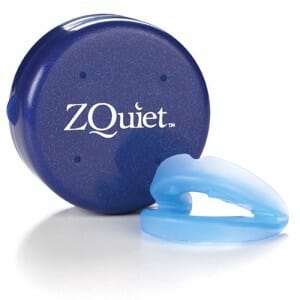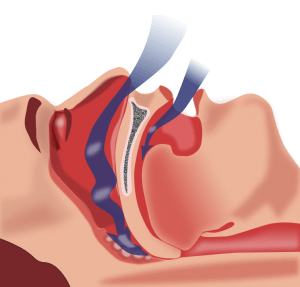If you have turned on the television in recent weeks you have likely noticed an increase in the frequency and number of advertisements that are promoting stop snoring mouthpieces for $9.95, $9.99, $19.99 or a similar ultra-low price range. Perhaps you have a spouse that snores or maybe just a roommate? Whatever the case may be, a product that stops snoring for less than the price of lunch sounds fairly convincing to most. So what’s the catch?
Are stop snoring mouthguards really $9.99?
 So you’ve seen multiple TV commercial sales pitches for the $9.99 mouthpiece that is supposed to put an end to your snoring. You immediately begin to question whether or not this is the true price of the product. The reality is, the price mentioned on most of these commercials is the price that you will pay to try the device out. Usually, if you don’t return the device within the 30 day trial period your credit card is charged for the remainder of the balance.
So you’ve seen multiple TV commercial sales pitches for the $9.99 mouthpiece that is supposed to put an end to your snoring. You immediately begin to question whether or not this is the true price of the product. The reality is, the price mentioned on most of these commercials is the price that you will pay to try the device out. Usually, if you don’t return the device within the 30 day trial period your credit card is charged for the remainder of the balance.
One of the most popular snoring mouthpieces advertised on television is the zQuiet. This particular device advertises “Try it today for just $9.95”. These are the actual shipping and processing costs which are non-refundable. But wait, there’s more! If you decide to keep the zQuiet beyond the 30 day trial period your credit card will be charged an additional $59.95 for a total cost of $69.90.
 Another example is the Puresleep. The commercial suggests that you “Try it now – Just pay $9.95 shipping and handling”. If you dig deeper you will realize that the $9.95 is the price that you initially pay to have the mouthpiece shipped to you for the “30 day trial period”. Once the thirty-day trial has expired and you have not returned the Puresleep, your credit card will be billed for the remainder of the balance which is $59.90. So the actual total price of this device is $69.85. Keep in mind that most sellers will not cover the cost of return shipping so if it doesn’t work out, you will still end up paying the $10 plus the complete cost of return shipping.
Another example is the Puresleep. The commercial suggests that you “Try it now – Just pay $9.95 shipping and handling”. If you dig deeper you will realize that the $9.95 is the price that you initially pay to have the mouthpiece shipped to you for the “30 day trial period”. Once the thirty-day trial has expired and you have not returned the Puresleep, your credit card will be billed for the remainder of the balance which is $59.90. So the actual total price of this device is $69.85. Keep in mind that most sellers will not cover the cost of return shipping so if it doesn’t work out, you will still end up paying the $10 plus the complete cost of return shipping.
While some may consider such advertising practices deceptive, the low-risk 30-day trial offer seems to be the industry standard. Unfortunately, this seems to be common practice among mouthguard sellers who are trying to push their products and compete with each other.
Okay, so they really cost $70 but does it work?
 The truth is, most oral appliance or “snoring mouthpieces” cost around $70. There are cheaper mouthguards out there however, they almost always come from less than reputable manufactures who often use inferior and potentially hazardous materials in production and do so without FDA clearance.
The truth is, most oral appliance or “snoring mouthpieces” cost around $70. There are cheaper mouthguards out there however, they almost always come from less than reputable manufactures who often use inferior and potentially hazardous materials in production and do so without FDA clearance.
So do they really work? Absolutely!
I discovered these godsent devices a few years ago after speaking with my doctor about Mandibular Advancement Devices (MAD) to help prevent my snoring. After discovering the HUGE price tag of professionally fitted devices I started searching online for over the counter alternatives. Amazingly there were several to be found so I ordered a few to try out. You can read my full story here.
After trying several products I found that most of them did a fantastic job at controlling my snoring. From here I created this blog to share my experience with others who suffer from snoring issues. Over the years I have reviewed several products in search of one that works the best in my particular case.
Exactly how do they work?
 While there are several dozen different variations of mouthpieces on the market, almost all of them work the same way. They all resemble a sports mouthguard with both an upper and lower tray. When inserted into the mouth the lower tray gently pushes out on the lower teeth, providing a slight jaw advancement – hence the name “Mandibular Advancement”. Since most snoring originates from the throat due to a narrowed airway, advancing the jaw pulls the tissue and muscles in this area forward to help widen the airway. The airway widening provides less restrictive breathing and provides less opportunity for tissues in the throat to flap against each other. The flapping of tissues is actually the sound that most of us are familiar with and label as snoring.
While there are several dozen different variations of mouthpieces on the market, almost all of them work the same way. They all resemble a sports mouthguard with both an upper and lower tray. When inserted into the mouth the lower tray gently pushes out on the lower teeth, providing a slight jaw advancement – hence the name “Mandibular Advancement”. Since most snoring originates from the throat due to a narrowed airway, advancing the jaw pulls the tissue and muscles in this area forward to help widen the airway. The airway widening provides less restrictive breathing and provides less opportunity for tissues in the throat to flap against each other. The flapping of tissues is actually the sound that most of us are familiar with and label as snoring.
There are several different variations of these devices and some are more comfortable than others. Some provide a breather hole to allow air to enter and exit while others do not. Some allow you to adjust the amount of jaw advancement while others cannot be adjusted. There are several factors that are used to separate the good products from the bad. Here is a mouthguard comparison chart that I created to help you compare over 25 different devices based on type, description, and overall cost.
Which one should I buy?
 One common question that people often ask me is “Which mouthpiece should I buy?”. As previously mentioned, there are several excellent devices on the market that are all effective when it comes to treating snoring. While I don’t favor one device, in particular, I have created a resource page that mentions a few recommended devices that I have personally tried and had great results. Also, don’t forget to look at the comparison chart that I mentioned above.
One common question that people often ask me is “Which mouthpiece should I buy?”. As previously mentioned, there are several excellent devices on the market that are all effective when it comes to treating snoring. While I don’t favor one device, in particular, I have created a resource page that mentions a few recommended devices that I have personally tried and had great results. Also, don’t forget to look at the comparison chart that I mentioned above.
Each device has its positives and negatives and there is not one perfect device that meets everyone’s needs. Here are a few factors that one should consider while making a decision:
- Do you breathe through your mouth while sleeping? If so, choose a product that allows air to move through your mouth.
- If you have sensitive gums or teeth you may want to consider a device that is soft and custom fits around your teeth.
- If on a budget consider starting off with a product in the $60-$70 range. You can always mover up to a more expensive device later.
